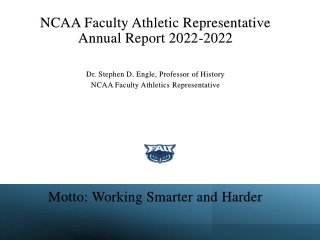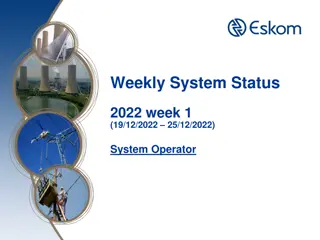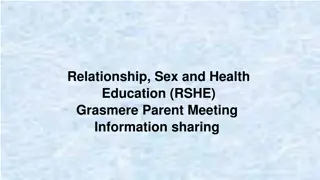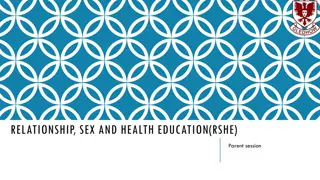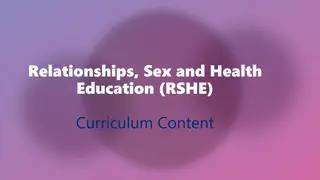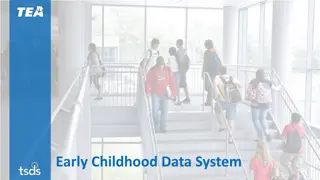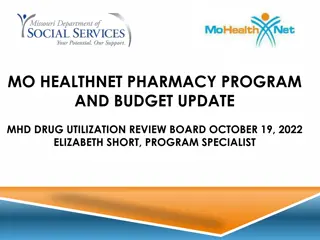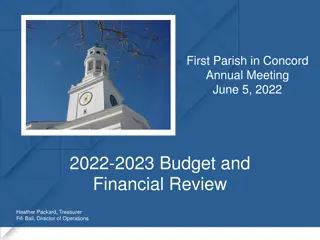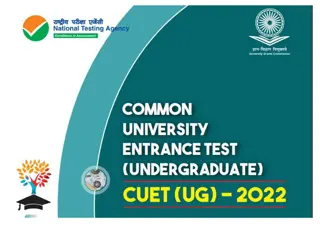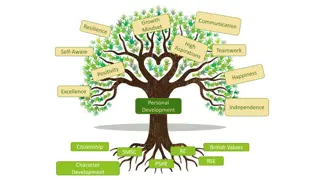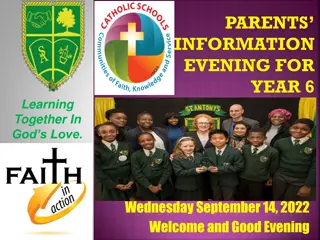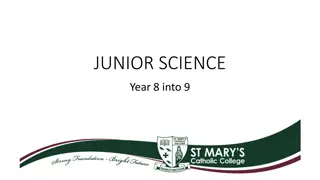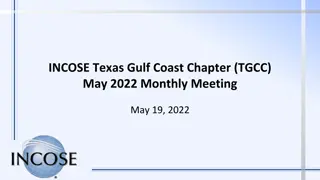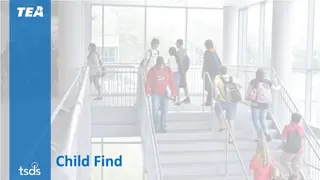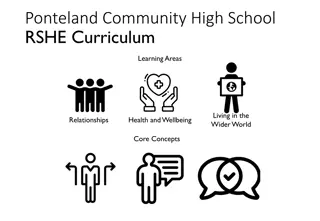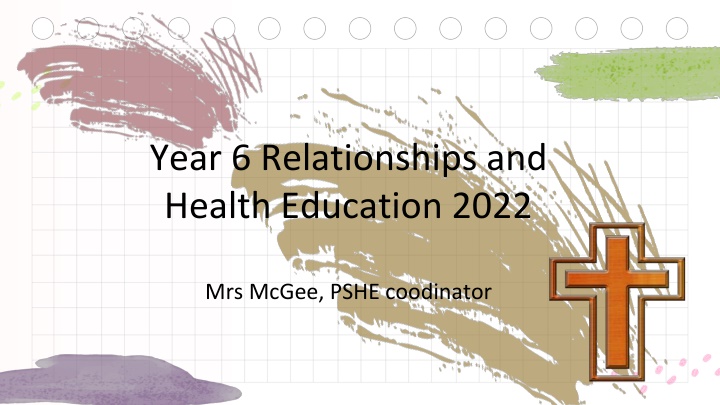
Year 6 RSHE Education Overview and Lesson Sequence
Explore the comprehensive Year 6 Relationships and Health Education program led by Mrs. McGee, focusing on topics such as puberty, menstruation, healthy relationships, and more. Delivered through engaging activities and classroom discussions, this curriculum aims to create a supportive environment for students to learn and grow. Access resources like the Ten Ten Parent Portal for additional support.
Download Presentation

Please find below an Image/Link to download the presentation.
The content on the website is provided AS IS for your information and personal use only. It may not be sold, licensed, or shared on other websites without obtaining consent from the author. If you encounter any issues during the download, it is possible that the publisher has removed the file from their server.
You are allowed to download the files provided on this website for personal or commercial use, subject to the condition that they are used lawfully. All files are the property of their respective owners.
The content on the website is provided AS IS for your information and personal use only. It may not be sold, licensed, or shared on other websites without obtaining consent from the author.
E N D
Presentation Transcript
Year 6 Relationships and Health Education 2022 Mrs McGee, PSHE coodinator
Overview RSHE - taught by Mr Barfield and Miss Smallwood as part of weekly Personal, Social and Health Education lessons. Opportunities for discussion are provided, group work, class activities Delivered by class teachers to allow children to feel as confident and as comfortable as possible. Supportive classroom environment PSHE Class Charters (PSHE class rules in place ie all children will be respectful and listen to each other), concern box / Ask-It Basket available in class for children who are shy or uncomfortable asking verbally or in front of others, open and honest environment encouraged. Prior RSHE learning in Year 6 and previous year groups - privacy, boundaries, emotions, keeping safe, wanted and unwanted touch (hugging etc), consent and saying no, speaking up, healthy relationships, sleep, introduction to puberty and menstruation covered in Year 5. Girls and boys are taught together, in their own classes, to avoid taboos which have existed previously in society ie boys shouldn t know about periods or talk about them in front of girls or that puberty is something secret etc.
Ten Ten Parent Portal Ten Ten Life to the Full, Catholic Relationships and Health Education scheme Scientific knowledge and dramatisations by child actors to deliver the Year 6 RSHE objectives in an age- appropriate way, which is fully rooted in the Catholic Faith. Ten Ten has a Parent Portal which you can access at www.tentenresources.co.uk/parent- portal - contains lesson objectives, suggested home activities and prayers for each lesson Username: good-shepherd-ng5 Password: summer-sun
Lesson sequence and overview - Year 6 Growing and Changing - Lesson 1 Puberty changes; puberty; respect and privacy Lesson 2 Menstruation the nature and role of menstruation in the fertility cycle, that fertility is involved in the start of life; some practical help on how to manage the onset of menstruation. Lesson 3 Making Babies 1 - external genitalia and internal reproductive organs in males and females and how the process of puberty relates to human reproduction; how a baby grows and develops in the womb. Lesson 4 Making Babies 2 - sexual intercourse, physical anatomy of men and women; the importance of love and commitment; pro-creation and decisions to not get pregnant; Christian view on why sex should be within marriage.
Lesson 1 Puberty Puberty overview Genitalia names - penis, testicles, vulva, vagina Boys puberty recap - voice gets deeper; taller, bigger, more muscular; pubic hair; penis and testicles will grow larger; hair will grow on the face and underarms; spots and sweat; changes in hormones leading to mood swings, erections and ejaculation. Girls puberty recap - breasts and hips will get bigger; grow taller; pubic hair; start having periods; spots and sweat; changes in hormones leading to mood swings.
Lesson 2 - Menstruation Nature and role of menstruation; PMS (premenstrual syndrome) - stomach cramps, hormonal mood changes, bloating and spots The menstrual cycle timings Practical help on how to manage the onset of menstruation What happens if menstruation starts while you are at school Sanitary products and hygiene The role of menstruation in the life cycle.
Lesson 3 Making Babies 1 In the Paradise Street video, Finn learns that his Mum is going to have a baby. He discusses it with his friends, who have varying degrees of understanding about how babies are made and they ask their parents about it. Finn and Leyla learn about the miraculous process of how human life is conceived and developed in the womb. This lesson helps children to consolidate learning from the films about the scientific processes in the womb and offers space for personal reflection on God s role in their own creation. Reflecting on pregnancy and childbirth as God s way of giving the gift of life; that He creates new life, but entrusts parents with the job of making us. Scientific aspects include how a baby grows and develops in the womb including conception, implantation, an embryo, a fetus, the vaginal birth of a baby.
Lesson 4 Making Babies 2 In the Paradise Street video, Finn and Leyla asked questions about how babies are made and they learned about the different stages of life in the womb. At the end of the episode, Finn asks his Dad, How did your sperm actually get inside Mum s body? This lesson looks at key scientific facts about sexual intercourse - The physical complementarity of men and women The importance of love and commitment to a relationship before sexual intercourse takes place Sex is not just for pro-creation and couples can make the decision, within marriage, to have sex without getting pregnant The Christian view on why sex should be within marriage Why God s design of sexual union is amazing That even when marriages break down or sex is not used the way God might have intended, God loves us all.
Equality and The Rule of Law- In all of our PSHE teaching, throughout the school, underpinned by our core ethos that God loves us all, we teach children that there are many types of relationship, that some people choose to marry and some people choose to live together; that some people choose to not be in a relationship; that some people choose to be in a relationship with the opposite sex but in Britain, men may marry men and women may marry women so people may be in same-sex relationships or civil partnerships. Following on from this, in Year 6, we teach children that the Catholic Church believes that sex should be within marriage, but this is not always the decision that everyone makes. Not everyone is Catholic or decides to follow the rules of the Catholic Church and in Britain people may make decisions to have sex outside of the sacrament of marriage. We teach children that the most important thing, for people who choose to be in any relationship, is that it is a loving, healthy relationship and throughout our PSHE curriculum we look at what makes a healthy relationship.
Special Educational Needs and Disabilities Teachers will plan in different ways and use a variety of teaching strategies to meet the needs of individuals. For some children, particularly those with Special Educational Needs and Disabilities, a differentiated, tailored approach may be necessary to ensure learning outcomes are met this will be based upon the individual needs of the pupil, prior to the session. If you feel that your child needs a differentiated approach to RSHE as they have Special Educational Needs or Disabilities, please speak to the class teacher and we will work together with you and Mrs Leonard to plan for your child.
Right of Withdrawal- Health Education is now statutory Puberty and menstruation form part of Health Education There is no right to withdraw children from puberty and menstruation lessons. Making Babies 1 and Making Babies 2 go beyond the primary statutory outcomes and therefore, you may withdraw your child from these lessons, should you feel it is necessary. However, we believe that they are progressive, appropriate lessons and as they are taught in a supportive, nurturing environment, we believe that they prepare your child for the future in an informative yet reassuring way, thus avoiding misconceptions that they may otherwise gain from wider sources such as television programmes, the internet or playground chat. Should you wish to withdraw your child, we would ask that you speak to Mr Barfield, Miss Smallwood, Miss Leonard or myself (Mrs McGee), in the first instance and we will support you with your decision.
Any questions? Please visit our website where you will find our PSHE and RSHE information page containing our RSHE policy with full details about how RSHE is taught and our PSHE curriculum. PSHE / RSHE - The Good Shepherd Primary Catholic Academy Please feel free to speak to Mr Barfield, Miss Smallwood, Miss Leonard or myself, Mrs McGee. I can be found outside the Year 3 classrooms at pick-up time Weds Fri. Please email community@goodshepherd.notts.sch.uk if you have any further questions. Thank you for your support.

